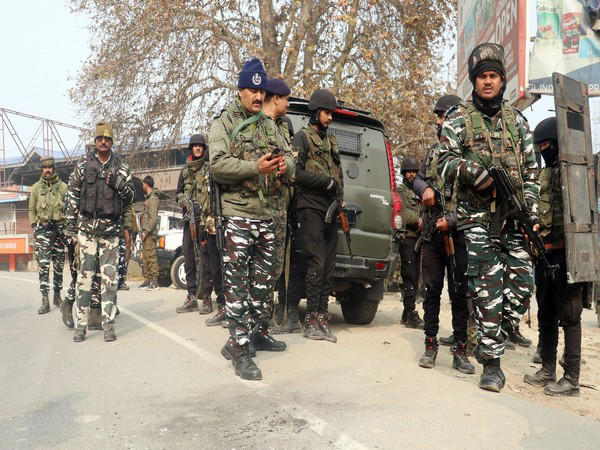The Indian government has announced the extension of the Armed Forces (Special Powers) Act (AFSPA) in four districts of Assam, citing concerns over recent disturbances in neighboring Bangladesh. The extension, which grants sweeping powers to the armed forces in these areas, reflects growing anxieties about regional security and cross-border tensions. The move has sparked debates about the necessity of AFSPA in Assam, a state that has seen significant reductions in insurgent activity in recent years, but where geopolitical factors continue to create instability.
The AFSPA Extension: A Strategic Decision
AFSPA will be extended in the districts of Dibrugarh, Tinsukia, Sivasagar, and Charaideo, located in the eastern part of Assam, near the border with Arunachal Pradesh and the sensitive Indo-Bangladesh border. These districts have seen periodic disturbances over the years due to insurgent activities, though there has been relative peace in the region more recently. However, recent unrest in Bangladesh has raised alarms in India, leading to a preemptive step by the government to tighten security.
AFSPA allows the armed forces to carry out operations, arrest individuals without a warrant, and even use lethal force if deemed necessary. The decision to extend AFSPA in these districts comes after intelligence reports suggested that the spillover effects of instability in Bangladesh could lead to cross-border issues, potentially reigniting tensions in Assam’s border regions.
Recent Disturbances in Bangladesh: A Regional Concern
The disturbances in Bangladesh, which Indian authorities are reportedly monitoring closely, involve political unrest, escalating violence, and tensions between various political and religious groups. The country has seen a surge in protests and violence over issues related to political transitions and the rising influence of Islamist groups. These disturbances have created concerns in Assam, which shares a long and porous border with Bangladesh, making it vulnerable to illegal crossings, smuggling, and the possible infiltration of extremist elements.
Given Assam’s historical ties with migration and insurgency, any instability in Bangladesh is closely watched by Indian authorities. In the past, cross-border migration has led to significant demographic changes in Assam, which have often fueled ethnic and political tensions. The government’s decision to extend AFSPA reflects its fears that the recent disturbances in Bangladesh could lead to a fresh influx of refugees or insurgent activity, which could destabilize the region.
Assam’s Complex Security Landscape
Assam has long been a site of complex socio-political dynamics, marked by issues of insurgency, ethnic conflict, and migration. While the insurgencies led by groups such as the United Liberation Front of Asom (ULFA) have largely been quelled in recent years, the state’s history of armed conflict continues to shape its security policies.
The extension of AFSPA in the four districts is indicative of the Indian government’s cautious approach to maintaining peace and order in the region. Though insurgent activities have significantly reduced in Assam, the presence of militant outfits in neighboring states like Nagaland and Arunachal Pradesh, as well as the proximity to Bangladesh, has kept the security apparatus on high alert.
Moreover, there is an underlying concern that any disruption in the delicate balance between communities in Assam—where issues of identity, ethnicity, and land rights remain contentious—could lead to renewed violence. The government has often used AFSPA as a tool to ensure that security forces have enough authority to deal with emerging threats quickly and efficiently.
Public and Political Reactions
The extension of AFSPA has, unsurprisingly, drawn mixed reactions from different quarters in Assam. Local leaders from the affected districts have expressed concern over the prolonged application of AFSPA, which many feel is no longer necessary given the relative calm in recent years. Critics of AFSPA argue that its sweeping powers can lead to human rights violations and alienate local populations, potentially driving more people toward extremism rather than ensuring peace.
Civil society organizations and human rights groups in Assam have long opposed AFSPA, calling it draconian and unnecessary in a state where insurgent activities have largely been brought under control. They point to the potential for abuse of power by security forces, particularly in regions with a history of political unrest, as justification for repealing the law.
However, supporters of the extension, particularly from the security establishment, argue that the recent disturbances in Bangladesh present a legitimate threat to Assam’s security. They warn that any relaxation of security measures in these districts could lead to a resurgence of cross-border insurgent activity, as militant groups from Bangladesh could use the instability to regroup and infiltrate India.
A Precarious Balancing Act
The extension of AFSPA in four districts of Assam underscores the Indian government’s cautious approach to ensuring the state’s security, especially in light of regional instability. While peace has largely returned to Assam, the disturbances in Bangladesh highlight the fragile nature of this stability. The government must walk a fine line between protecting its borders from potential security threats and addressing the concerns of local populations who have long demanded the removal of AFSPA.
As Bangladesh grapples with its internal challenges, Assam remains on alert, wary of the spillover effects that could once again drag the state into conflict. The continued imposition of AFSPA will likely remain a contentious issue, balancing the imperatives of national security with the demands for greater autonomy and human rights in the region.


